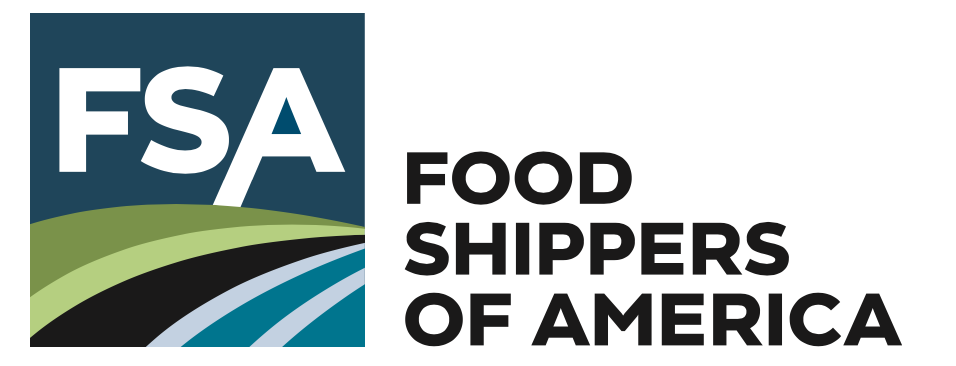A Closer Look at Trucking and Rail/Intermodal Sector Economic Indicators
by FTR | Sponsored Content, on Jul 12, 2024 2:13:12 PM

With the major exception of housing, seasonally adjusted economic indicators in May 2024 generally were at least even with April and were in some cases significantly stronger. Inflation also was tame. The labor market, meanwhile, showed signs of cooling as payroll job growth in the second quarter was the slowest since the second quarter of 2020 and unemployment moved higher. Other observations?
- Manufacturing output increased 0.6% month-over-month in May following a Federal Reserve data revision at the end of June. Output was down 0.3% year-over-year.
- Real consumer spending increased 0.3% in May, although the April estimate was downwardly revised. Real spending on goods rose 0.6% while real spending on services declined 0.1%.
- Housing starts fell 5.5% month-over-month in May following a downwardly revised 4.1% gain in April. Starts were down 19.3% y/y. Sales of both new and existing homes fell in May.
- FTR’s freight volume forecasts for rail and intermodal improved, but the truck forecast weakened.
Looking at the Trucking Sector
Trucking market conditions for carriers improved in May due mostly to falling diesel prices. The outlook remains weak through early 2025. Here are predominant observations:
- The truck loadings forecast for 2024 truck loadings weakened to 1.1% growth year-over-year due mostly to the bulk/dump sector. Most other equipment types saw slight deterioration. The 2025 total loadings forecast is marginally weaker than the prior outlook at an increase of 2.2% year-over-year.
- FTR’s forecast for active truck utilization is a bit softer due to the weaker freight outlook. Active utilization in May was estimated at 91%, which is about a point below the 10-year average and should reach 93% by the beginning of 2025.
- For-hire trucking’s payroll employment barely changed in June at down just 100 jobs, seasonally adjusted, although April and May's estimates were downwardly revised by 1,400 jobs. Employment is down 1.9% year-over-year.
- FTR’s forecast for truckload rates in 2024 improved slightly, although it is still negative for 2024. The improvement to -2.1% for total rates was due to stronger spot rates, but the contract forecast softened marginally. The 2024 LTL rate forecast changed a little at +1.8% year-over-year.
Looking at the Rail/Intermodal Sector
Intermodal and rail carload volume forecasts improved for 2024, although the carload forecast remains negative. Rates in both sectors are looking at least a bit stronger. Here are predominant observations:
- Intermodal traffic is forecast at 6.4% growth year-over-year, up from 5.3% previously. The improvement is due to both international and domestic volume, but international traffic is still the main strength.
- Carload loadings are forecast at a 1.0% decrease in 2024, an improvement from the 1.4% decline in the prior outlook. A major reason for the less negative forecast is steadily improving coal volume, although several carload commodities are seeing firmer traffic.
- Intermodal pricing has been strengthening but is not expected to turn positive year-over-year until the second half of this year. The 2025 forecast is +2.4% y/y. Rail carload linehaul rates are expected to be up 1.5% year-over-year this year and 2.3% in 2025.
- Rail velocity has been basically flat over the past two months, but it likely will decline in the next month in keeping with seasonal trends. One factor that could yield weaker velocity is a continued recovery in coal volumes. Dwell times have fallen slightly over the past two months.
About FTR
If your organization is struggling to identify economic inflection points that will likely serve as a leading indicator to shifts in available capacity and rate pressure, allow us to introduce ourselves. We're Freight Transportation Research, the leading commercial freight forecasting firm. We've built our award-winning forecasting model, Freightcast, to identify how changes in the macro-economy will impact the future of freight transportation. If your procurement lacks precision and your budgets are consistently busted, I invite you to claim your complimentary Market Update Call with the FTR experts. As a thank you for your time, you'll also receive a complimentary copy of our most recent Shippers Update monthly forecasting service.
As a member of the Food Shippers of America, click here to see how FTR has rightfully staked our claim as the Shippers Sherpa guiding our clients to stronger supply chains.
Related Articles:
- Is Consumption Finally Back to Normal?
- Putting Numbers to the Trucking Downturn
- Uncharted Territory for Trucking Capacity
- A Growing Economy that Doesn’t Boost Freight
- Market Assessment: Share of Food Tonnage by Mode
- Food Shippers of America and FTR Announce Partnership to Advance Transportation Industry Information Access
Like this kind of content? Subscribe to our "Food For Thought" eNewsletter!
Now more than ever, professionals consume info on the go. Distributed twice monthly, our "Food For Thought" e-newsletter allows readers to stay informed about timely and relevant industry topics and FSA news whether they're in the office or on the road. Topics range from capacity, rates and supply chain disruption to multimodal transportation strategy, leveraging technology, and talent management and retention. Learn More



